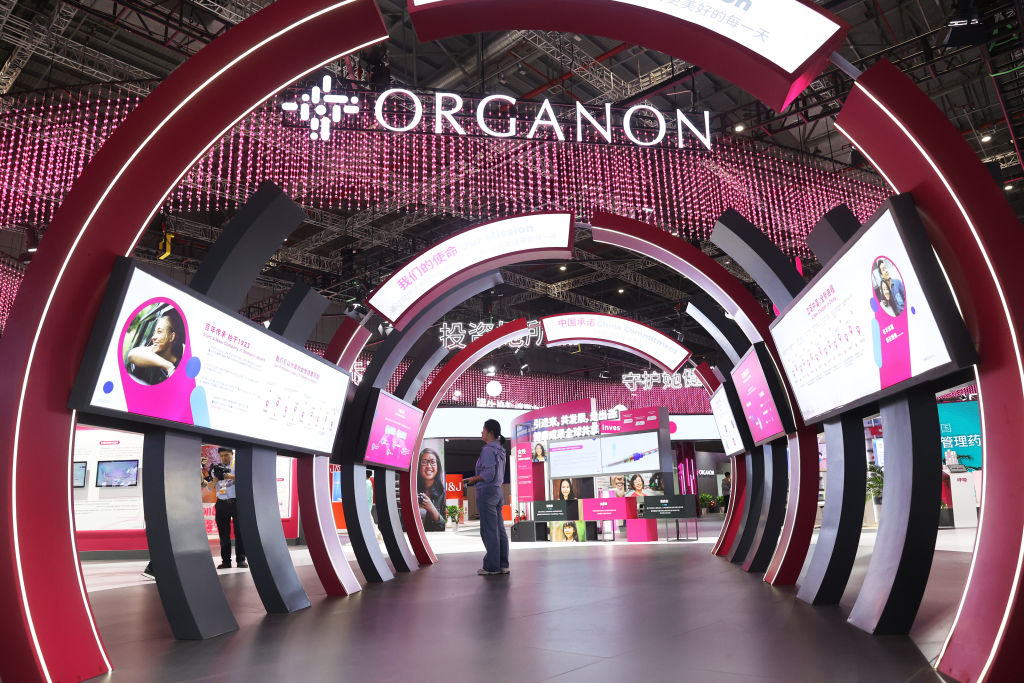
Organon is broadening its presence in dermatology with a deal to acquire Dermavant, a company whose main asset is a commercialized plaque psoriasis drug that could soon expand its approval to include an even more prevalent inflammatory skin disorder.
Under terms of the agreement announced Wednesday, Organon could pay out as much as $1.2 billion for Dermavant, a subsidiary of Roivant Sciences. But Roivant is getting just $175 million up front. The rest of the deal is heavily weighted with milestones, similar to deal structures of other Organon transactions. The first milestone could come soon.
Dermavant has commercialized Vtama, a topical cream that treats plaque psoriasis. Topical steroids are a standard treatment for this inflammatory skin condition. The Dermavant drug is a non-steroidal topical cream that works by blocking signaling proteins that drive inflammation. This mechanism of action has potential applications in other skin disorders. Vtama is currently under FDA review in atopic dermatitis and a regulatory decision is expected in the fourth quarter of this year. Approval in this indication would trigger a $75 million milestone payment.

NEMT Partner Guide: Why Payers and Providers Should Choose MediDrive’s TMS
Alan Murray on improving access for medical transportation.
Vtama, Roivant’s only commercialized product, was projected to become a blockbuster seller. The drug accounted for $75.1 million in sales for the fiscal year ended March 31, up from $28 million in sales in the prior fiscal year. While Vtama sales are growing, the market for plaque psoriasis treatments remains crowded and competitive. Last fall, disappointing sales led Leerink Partners to slash its 2032 Vtama revenue forecast from $1.4 billion to $407 million. Analyst David Risinger said in a research note at the time that the lower than expected sales are likely due to physicians and patients being comfortable with the available generic topical steroids as well as the branded drug competition facing Vtama.
“That said, we still see a significant opportunity for Vtama in atopic dermatitis, particularly since it should be approved in children age 2+ and parents are likely to prefer non-steroids and non-systemic drugs for their children,” Risinger said.
Organon spun out of Merck in 2021, comprised of the pharma giant’s women’s health business and off-patent drugs. The Organon dermatology portfolio currently has two products: Diproson, a topical corticosteroid for skin conditions such as itching and eczema (another name for atopic dermatitis), and Elocon, a topical ointment for relieving redness and itchiness from conditions such as psoriasis and dermatitis. These dermatology medicines are grouped with bone health and non-opioid pain products, all of which accounted for $782 million in revenue last year, according to Organon’s annual report. Nearly all of these sales, about 12% of the company’s total revenue, came from outside of the U.S.
In addition to the upfront and milestone payments outlined in the deal, Roivant is eligible for royalties from Organon’s sales of Vtama. Organon is also assuming the Roivant subsidiary’s debt. Vtama brings to Organon a product that is approved in the U.S. with the potential to grow in additional markets. Organon gains global rights to Vtama, excluding China and Japan where rights to the drug are held by other companies. In the joint announcement of the Dermavant acquisition, Organon CEO Kevin Ali and Roivant CEO Matt Gline both pointed to the larger company’s global scale as important for helping Vtama achieve its commercial potential.

As Healthcare and Biopharma Companies Embrace AI, Insurance Underwriters See Risks and Opportunities
In an interview, Munich Re Specialty Senior Vice President Jim Craig talked about the risk that accompanies innovation and the important role that insurers play.
“We look forward to combining Dermavant’s strong dermatology commercial and field medical organization in the U.S., with Organon’s market access capabilities, regulatory expertise and worldwide commercial reach,” Ali said in the announcement. “This will allow us to bring Vtama cream, a patient-focused innovation in dermatology, providing an effective, well-tolerated, non-steroidal treatment option to the millions of people living with plaque psoriasis and potentially atopic dermatitis.”
Roivant’s business model involves scouting for drug assets shelved by academic institutions and pharmaceutical companies. After acquiring rights to those assets, Roivant houses them in subsidiaries it calls “Vants.” Roivant acquired Vtama’s rights from GSK in 2018, then steered the drug through clinical development and ultimately FDA approval in 2022. Vtama became the first product Roivant commercialized on its own.
In a research note sent to investors Wednesday, Leerink Partners’ Risinger said the sale of Dermavant is not a surprise, as Vtama continued to underperform sales expectations and management had previously indicated it could consider an exit. He added that he expects Roivant to focus on specialty drug candidates with blockbuster potential. Roivant is still an active dealmaker, as both a buyer and a seller. Nearly a year ago, Roivant sold Televant, a Vant developing an inflammatory bowel disease drug from Pfizer. Roche paid $7.1 billion up front to buy Telavant. Last week, Roivant unveiled Pulmovant, a lung-focused subsidiary preparing for Phase 2 testing of a drug for pulmonary hypertension associated with interstitial lung disease. Pulmovant’s drug was licensed from Bayer.
Photo: Tang Yanjun/China News Service/VCG, via Getty Images






